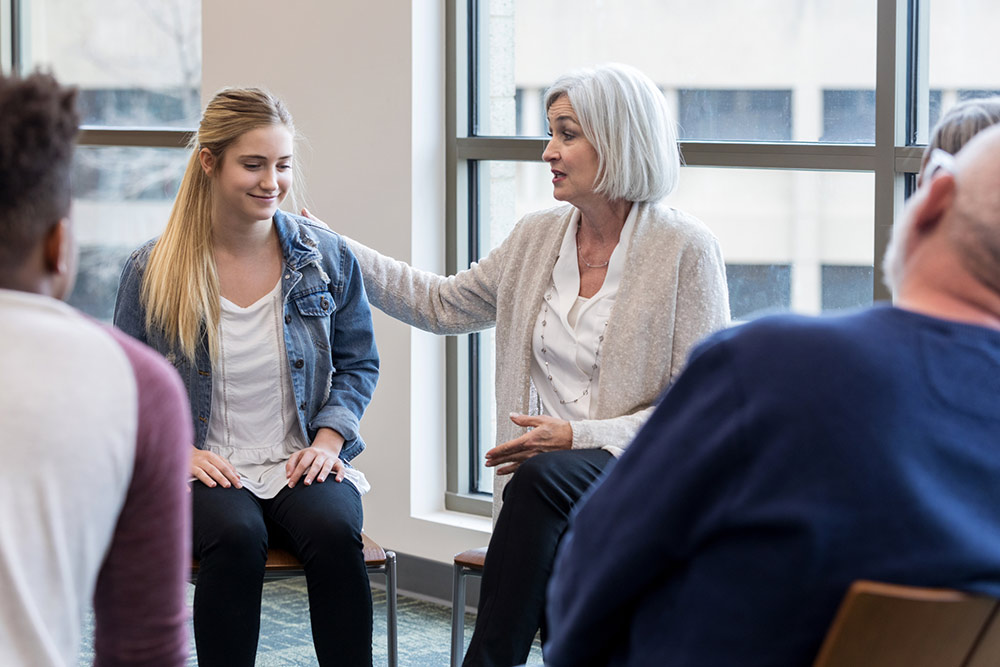The Role of Family in Recovery
Family involvement in the recovery process is crucial, and treatment at The Meadows Ranch includes family work in the way of lectures, workshops, and meetings. Family dynamics often play a role in eating disorders, so it’s essential to provide a space for the family to communicate efficiently to heal.
Although it may be the daughter with the actual disorder, she is probably not the only family member who may need to make changes. Therefore, all family members need to be fully committed to working on the aspects of their lives that could benefit from careful attention and growth. Parents should strongly consider participating in family or marital therapy to reinforce their commitment to their daughter’s recovery, to obtain objective feedback about her behaviors, and to grow in their relationship with their daughter.
Whoever is going to be that support system after treatment, family therapy and participation in family work at The Meadows Ranch will give you tools to use as you move forward.
RELAPSE PREVENTION


